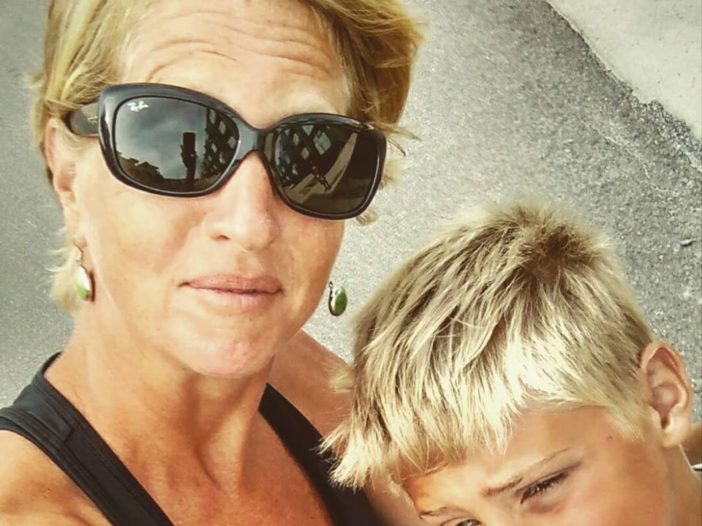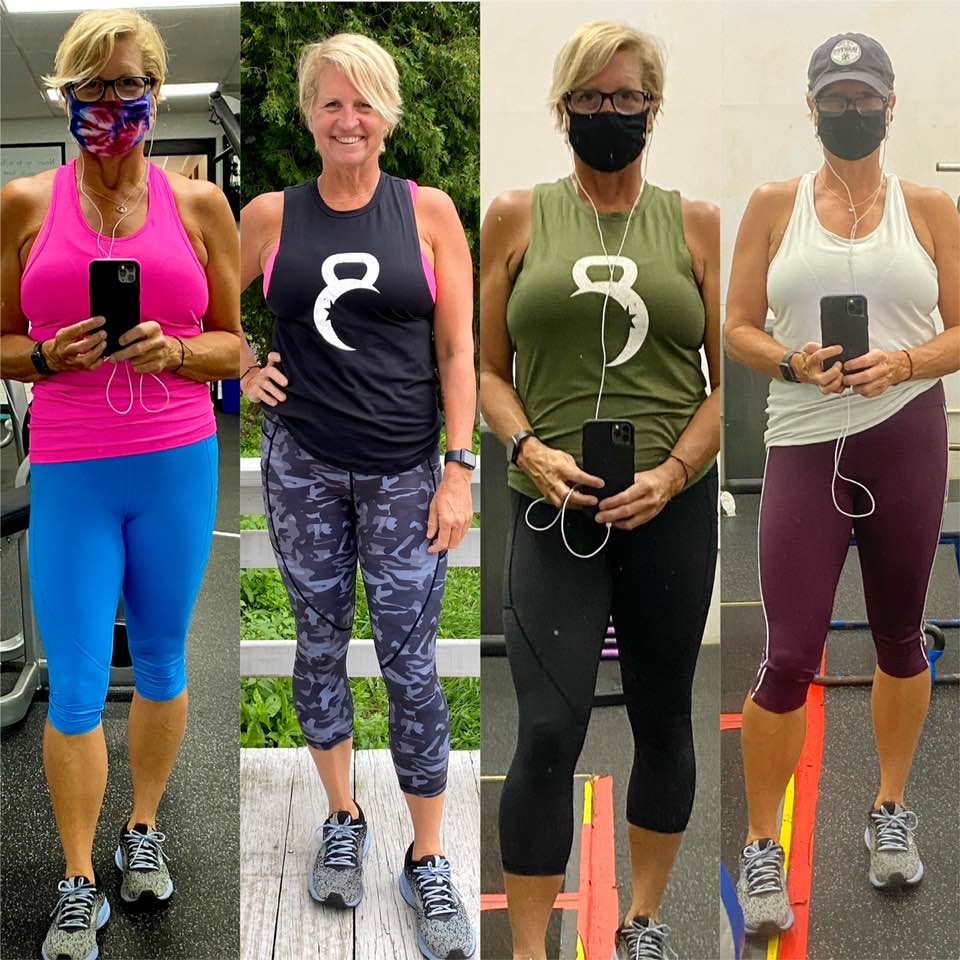
One of my kids was crippled by anxiety as a child.
He had to check to see where I was every five minutes and multiple times throughout the night, couldn’t have any doors closed if I wasn’t in the room with him, wouldn’t go anywhere unfamiliar by himself, and was terrified of elevators. He had rituals on bus rides to ensure the bus wouldn’t break down, and was constantly worried that we were doing something at the wrong time or the wrong place.
I was really worried about him realizing his full potential (or even a fraction of it) for a long, long time.
I give sports — and swimming in particular — 98% of the credit for helping him find ways to either tell that anxiety to go fuck itself or find ways to manage the stuff that still lingers.
I’ll take credit for the other 2%.
And at first I’m pretty sure I made it worse.
Then I did a lot of reading and observing and trial and error and just growing as a person, and I figured a couple things out.
But I only learned this after giving birth five times and making a shit ton of parenting mistakes.
I am so grateful for motherhood.
It has given me a perspective I never, ever would have had when interacting with all human beings, but with children in particular.
I started babysitting when I was 13.
I was a camp counselor at 15.
At 16 I started teaching swim lessons and coaching swimming.
I started teaching when I was 24.
I had lots of experience with kids before I gave birth for the first time at 35.
But I was so judgmental.
And still, with all that experience, I was SO CLUELESS.
I started coaching the middle school swim team this year.
And there is something I have been able to observe now, after 15 years of parenting, that I wouldn’t have noticed or understood before becoming a mom. Even with all my years of babysitting and teaching and coaching.
To many people, the anxious child presents as a pain in the ass.
As a kid who just doesn’t pay attention.
As a kid who doesn’t give a shit.
As a kid who just needs to focus.
As a kid whose parents obviously suck.
But that’s not what’s going on.
I am so thankful to have years of parenting experience under my belt. Because I am able to see things through such a different lens.
Right now I am working with a boy who really struggles with anxiety. Paralyzing anxiety.
And he did a really awesome thing this year.
He joined the middle school swim team.
He is brand new to swimming.
BRAND NEW.
There is so much going on in his head. So many fears.
So for him to even step foot on the pool deck is a big deal.
LIKE A REALLY BIG DEAL.
Before the season started, his mom asked me if he could be involved with the team in some way. Like be a team manager or something, because he was convinced he wasn’t good enough to join the team.
I told her to bring him to the first practice.
And to wear a suit.
He was not gonna be a manager, dammit.
He was going to be an athlete.
I taught him how to swim two summers ago in my pool at home, so I knew it would be challenging for him.
But I also knew it could be life changing.
That first day of practice he was terrified. I saw it on his face.
I imagine he was catastrophizing big time.
There is no way I can make it across the pool.
I’m going to be the slowest one.
I’m going to look stupid.
People are going to make fun of me.
I’m going to drown and nobody will see me.
What if I die?
Is the water clean?
I’m afraid to get the water in my mouth.
What if I get sick?
Do people pee in the pool?
AM I GOING TO DRINK PEOPLE’S PEE?
I know some of these thoughts probably went through his head.
Maybe all of them did.
And when your head is swirling with these questions and thoughts and worries, you know what gets in?
NOT MUCH.
And so when the coach or teacher or parent is giving directions and explaining things, super anxious kids haven’t heard a thing you said.
Not because they don’t want to listen. Not because they don’t want to be a part of the team or the group or the class or the family.
But because they can’t turn off the worries and that’s where all their attention and energy goes.
Then they fall behind because they don’t know what’s going on because when you were explaining what to do they were imagining their death in the pool.
And it seemed very, very real and very, very probable to them.
You know what happened at that first practice?
My anxious friend didn’t drown.
He didn’t choke on water.
He didn’t make an ass of himself.
He did awesome.
And when he was done, he was SO PROUD OF HIMSELF.
And for the first time in well, maybe ever, he felt like maybe he could be a part of a group.
He felt like maybe, just maybe, even with all the bullshit still going on in his head, he belonged.
And he has kept coming back.
Tomorrow he is swimming in his first swim meet.
He is terrified, I know.
But he’s gonna do it tomorrow.
And those worries in his head?
They’re still gonna be there.
But they won’t be quite as loud.
And he’ll have a little ammo to fire back at them with.
The more he does these things he’s sure he can’t do — with encouragement and patience and understanding — the more he’s going to (no pun intended) drown out those voices until they are tiny little whispers that.
And I am so looking forward to using swimming as the vehicle through which I can watch him grow and build confidence and discover ways to tell his anxiety to go pound sand.
If I had been his coach before having kids I would have been annoyed and frustrated and exasperated by him.
I might have even thought his parents were forcing him to do something he didn’t want to do.
But now I know better. Thank God.
If you have a problem student or a problem athlete or a problem child, the problem isn’t them.
It’s what is going on in their head.
And there’s a good chance there is a whole bunch of anxious thoughts that, we, as outsiders, can see are completely irrational.
To those anxious kids who so often present as troublemakers or misfits, these thoughts are very, very rational, and very, very real. These internal worries may show up on the outside as anger or disinterest or a whole boatload of other behaviors.
But when you spend some time getting to know the anxious kids and remember that what you see on the outside is really a symptom of something completely different on the inside, you put yourself in a position to help that kid change the course of his or her life.
And at the end of the day, that’s what it’s all about.
It’s not about a test score or a time at a swim meet or anything else quantifiable.
It’s about making a difference by looking past the differences and making human connections.
With everyone.
Wanna look cute while you work out?
Wanna look cute while you don’t work out?
JOIN MY BADASS ZYIA COMMUNITY.


Awesome info. Addie has struggled with anxiety a lot. I wish you coached closer to home. I so want her to find her sport that she can feel a part of. She is too scared to be in front of people. I try to be encouraging every day though, in hopes she will find her “thing” that makes her feel good about herself.
I’m coaching the middle school team right here!